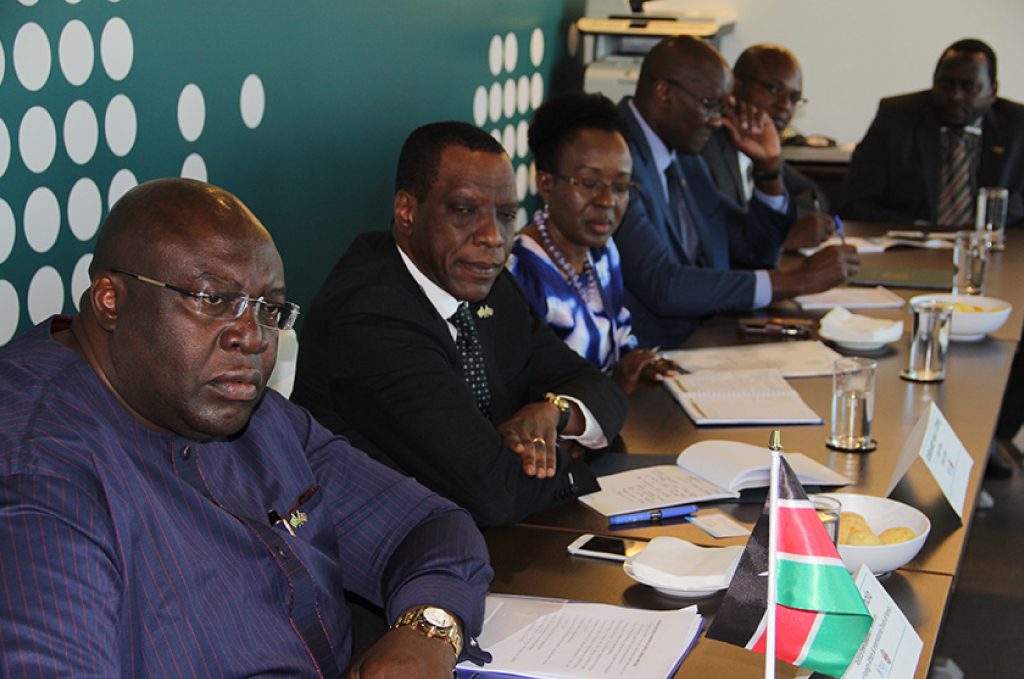
On 1 June, Ambassador Tom Amolo, Kenya’s Secretary for Political and Diplomatic Affairs of the Ministry of Foreign Affairs visited the WFP Centre of Excellence against Hunger to discuss the Centre’s technical support to Kenya’s efforts in food security. The focus of the meeting was an exchange of information on how to strengthen food and nutrition security policies. The Ambassador was accompanied by members of the Embassy of Kenya in Brazil and of the country’s Ministry of Foreign Affairs.
The meeting was requested by Ambassador Tom Amolo after Daniel Balaban, director of the WFP Centre of Excellence, was in Kenya in early May for the launch the country’s School Meals and Nutrition Strategy. The document of the strategy was elaborated by a multi-sectoral team that included the WFP Centre of Excellence against Hunger. The technical support of the WFP Centre of Excellence to Kenya began in 2016, when a governmental delegation undertook a study visit to Brazil to exchange knowledge on school feeding and nutrition approaches.
“We do not need to import solutions from other countries, because they would not work; we create new solutions together”, said Daniel Balaban, explaining the work of the WFP Centre of Excellence. “We need to be inspired by other countries’ solutions and to disseminate these solutions deeply in Kenya’s counties. A communications strategy is very important to make sure mothers in the counties can be aware of such solutions and profit from them”, highlighted Ambassador Tom Amolo.

Brazilian experience
In Brazil, one key aspect to keep youth interested in farming is public food procurement programmes. With the Food Acquisition Programme and the National School Feeding Programme, Brazil created a steady market for smallholder farms’ produce, which in turn generated new work opportunities for young farmers.
The school feeding programme must invest at least 30 percent of its budget in buying food produced by smallholder farmers. This represents an investment of around US$ 500 million per year in small-scale food producers. Besides generating income and job opportunities for farmers, this measure had positive impacts on the quality of meals served in school to children.

Cotton project
Another topic discussed during the meeting was the new cotton initiative, which will promote triangular cooperation between Brazil, the WFP Centre of Excellence and four African countries. Kenya is one of the participating countries, along with Benin, Mozambique, and Tanzania.
The project aims to create solutions for the distribution and commercialization of cotton by-products, such as cotton oil and seeds, and associated crops, such as maize, beans, and sorghum. The goal is to take advantage of existing school feeding programmes to create market opportunities for cotton producers.
By selling their produce to the local school feeding programmes, small-scale cotton farmers can contribute to improve the nutritional aspects of the school meals and increase their family income. This has also the potential of encouraging young people to keep living and working in rural areas.




